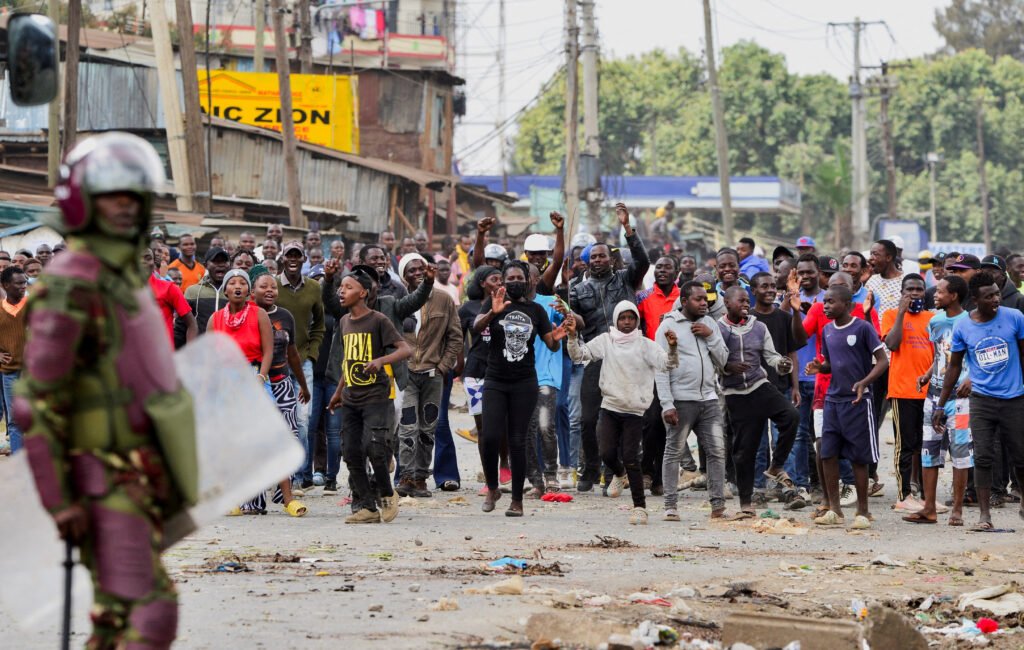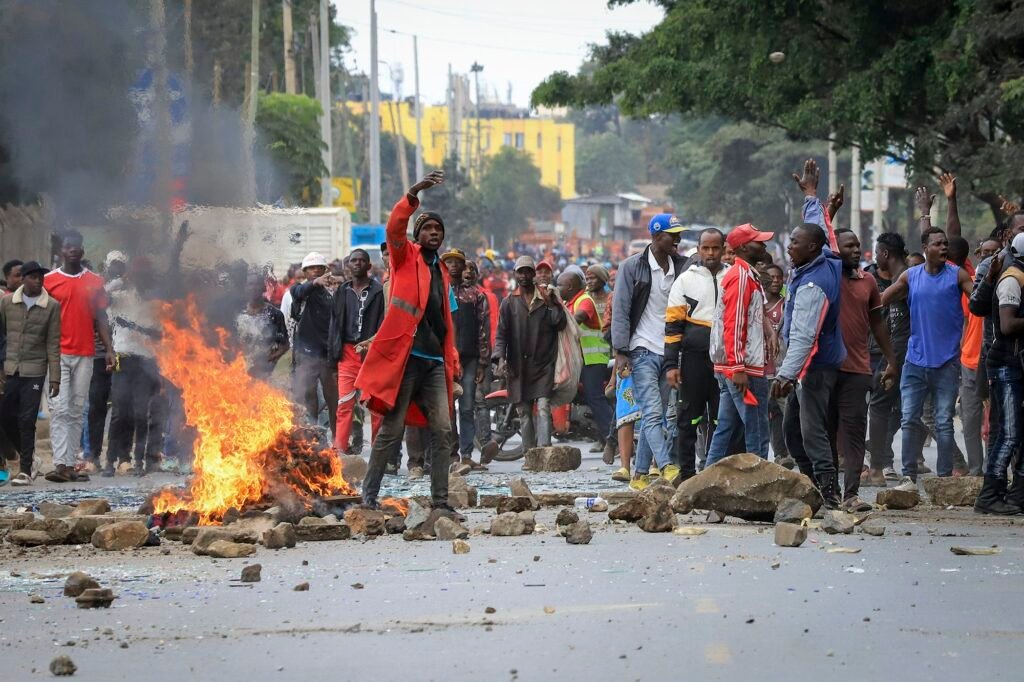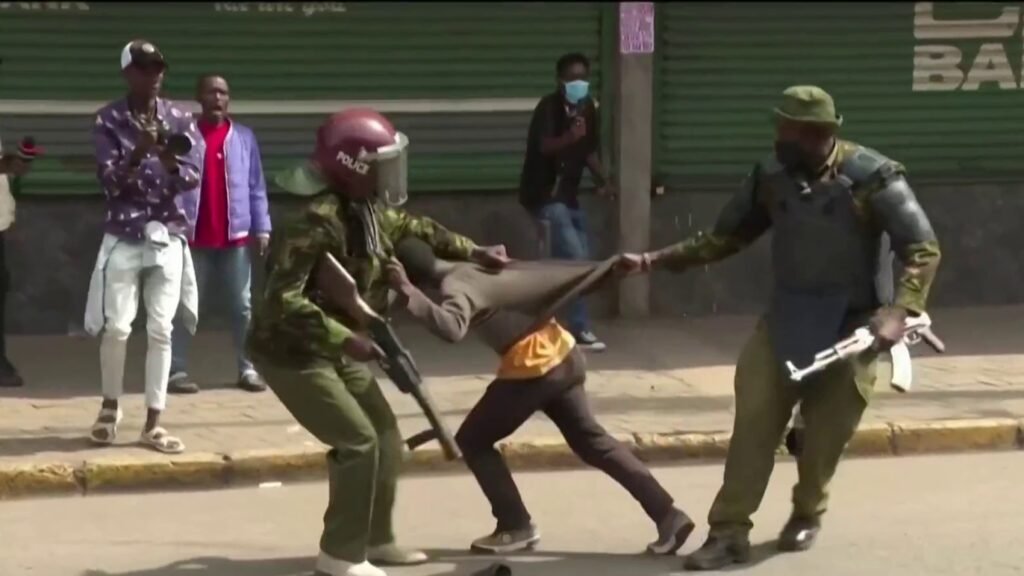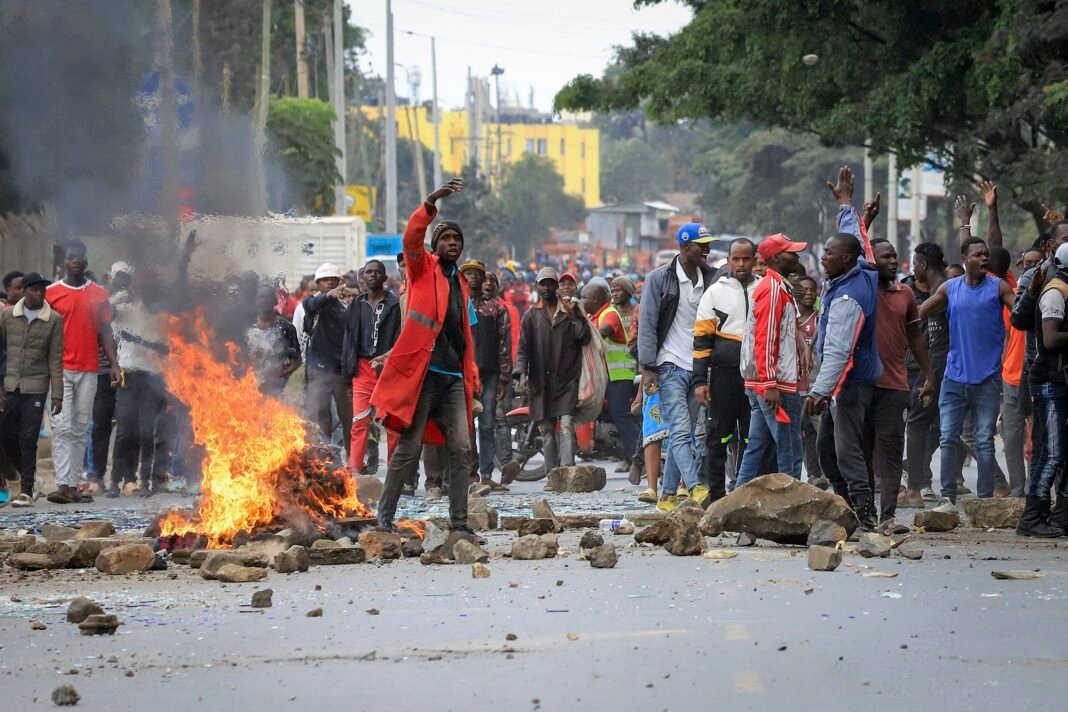Background of the Demonstrations
The recent demonstrations in Kenya have deep roots in a complex interplay of historical and socio-political factors. A significant catalyst for these protests has been widespread dissatisfaction with government policies that many citizens perceive as unjust or ineffective. Over the past decade, economic conditions have worsened for a large segment of the population, leading to increased unemployment, rising living costs, and a widening gap between the wealthy and the poor. These economic hardships have fueled public discontent, culminating in a call for more equitable economic policies.
Government corruption and lack of accountability have also been central issues driving the protests. Reports of embezzlement and misuse of public funds have eroded trust in political leaders and institutions. Activists are demanding greater transparency and reforms to ensure that government officials are held accountable for their actions. This demand for political reform is closely tied to a broader struggle for human rights, as citizens seek to protect their civil liberties and ensure that their voices are heard in the political process.
A key issue that has galvanized many activists is the call for economic equality. Protesters argue that current economic policies disproportionately benefit the elite while leaving the majority of Kenyans in dire straits. They are advocating for policies that promote fair distribution of resources, job creation, and improved social services such as healthcare and education. The push for economic equality is seen as essential to achieving long-term stability and prosperity in the country.
Several notable activist groups and leaders have emerged at the forefront of this movement. Organizations such as the Human Rights Watch and the Kenya National Commission on Human Rights have been vocal in their support for the protesters’ demands. Prominent figures like Boniface Mwangi, a well-known activist and photojournalist, have played a crucial role in mobilizing public support and drawing international attention to the cause. These leaders and groups are united by their commitment to advocating for a more just and equitable society in Kenya.

Details of the Recent Demonstrations
The recent demonstrations in Kenya unfolded with a significant turnout of activists and supporters. The protests, which commenced early in the morning, spanned several key locations across major cities such as Nairobi, Mombasa, and Kisumu. Participants gathered in large numbers, voicing their dissatisfaction with the current political and economic climate. The demonstrations, which were largely peaceful at the outset, quickly escalated as the day progressed.
Clashes between protesters and the police were reported in multiple areas. In Nairobi, the epicenter of the protests, demonstrators congregated at Uhuru Park before marching towards the central business district. The police, anticipating large crowds, deployed in full force using tear gas and water cannons to disperse the masses. Acts of civil disobedience were evident, with some protesters blocking main roads and setting up barricades, leading to significant disruptions in traffic flow.
Notable speeches were delivered by leading activists who called for governmental accountability and reforms. These speeches resonated with the crowd, amplifying their resolve to continue the demonstrations despite the heavy police presence. One of the pivotal moments was a speech by a prominent activist who emphasized the need for peaceful protests and urged the government to listen to the people’s grievances.
Law enforcement’s response was marked by a stern approach. Various tactics were employed to control the crowd, including the use of batons and rubber bullets. Reports indicate that over 270 individuals were arrested during the protests. These arrests included leading figures in the activist community, which further fueled tensions between the protesters and the police.
Eyewitness accounts describe the events as chaotic and intense, with many individuals caught in the crossfire between the police and demonstrators. Media coverage provided a comprehensive overview of the situation, highlighting both the peaceful aspects of the protests and the subsequent confrontations. The extensive media attention has brought global awareness to the situation, drawing comments and concerns from international observers.

Government and International Reactions
The Kenyan government’s response to the recent demonstrations has been multifaceted. In official statements, government officials have emphasized the need to maintain law and order, citing that the protests have disrupted public peace and led to property damage. Interior Cabinet Secretary Fred Matiang’i stated, “While the right to peaceful assembly is enshrined in our Constitution, it must be exercised responsibly without infringing on the rights of others.” Consequently, the government has justified the arrest of over 270 activists as a necessary measure to restore public order.
To address the protesters’ demands, the government has announced several initiatives aimed at dialogue and reconciliation. President Uhuru Kenyatta has called for an open forum where grievances can be aired in a controlled environment, aiming to foster a constructive dialogue between the state and civil society. Despite these efforts, many activists remain skeptical about the government’s commitment to genuine reform, citing past instances where similar promises were not fulfilled.
Legally, those arrested face a range of charges, including unlawful assembly, incitement to violence, and destruction of property. Human rights lawyers have raised concerns about the fairness of these charges, arguing that many of the detained activists were simply exercising their constitutional right to protest. The legal proceedings against the activists are being closely monitored by both national and international observers.
On the international front, the reactions have been varied. The United Nations has issued a statement urging the Kenyan government to respect human rights and ensure that the response to the protests is proportionate. The European Union has also expressed concern, highlighting the importance of upholding democratic principles. Various human rights organizations, including Amnesty International, have called for the immediate release of the detained activists, labeling their arrests as a violation of fundamental human rights.
Foreign governments have taken a more cautious approach. While countries like the United States and the United Kingdom have reiterated the importance of peaceful protest and human rights, they have stopped short of direct intervention, opting instead for diplomatic engagement with the Kenyan government. This global perspective underscores the delicate balance between maintaining national sovereignty and ensuring adherence to international human rights standards.

Impact and Future Implications
The recent demonstrations in Kenya, resulting in over 270 arrests, have significant short-term and long-term implications for the nation’s socio-political landscape. In the immediate aftermath, the activists face potential legal repercussions, which could serve as both a deterrent and a rallying point for future protests. The government’s response, marked by mass arrests, highlights its stance on dissent and raises questions about its commitment to human rights and democratic principles.
In the short term, the government’s approach may lead to heightened tensions and further unrest. Activists and civil society organizations might intensify their efforts, advocating for policy changes and greater accountability. This could result in a cycle of protests and crackdowns, with the potential for escalating violence. The general populace may experience a sense of instability, affecting daily life and economic activities.
Long-term implications are equally profound. The mass arrests could undermine public trust in the government, potentially leading to a more polarized society. If the authorities continue to suppress dissent, it may stifle political dialogue and hinder democratic processes. Conversely, sustained activism could empower citizens and foster a more vibrant civil society, ultimately contributing to positive political reforms.
On the international stage, Kenya’s handling of the protests and mass arrests could affect its relations with other nations and international organizations. Human rights violations and suppression of dissent might attract criticism and impact foreign aid and investment. Conversely, a commitment to addressing the root causes of the unrest and upholding democratic values could enhance Kenya’s global standing.
Economically, the demonstrations and resulting instability could deter investment and tourism, key sectors for Kenya’s economy. However, addressing the underlying issues and fostering a stable political environment could create opportunities for growth and development in the long run.
Future developments will likely depend on the government’s ability to engage with activists constructively and address their grievances. Policy changes aimed at promoting inclusivity and transparency could mitigate the likelihood of further protests. Ultimately, the path Kenya takes in response to these demonstrations will shape its socio-political landscape for years to come.




